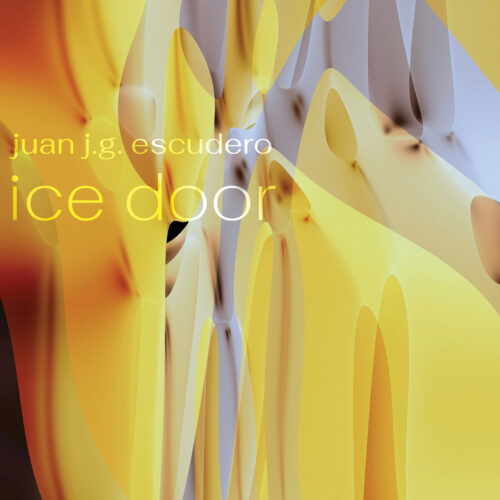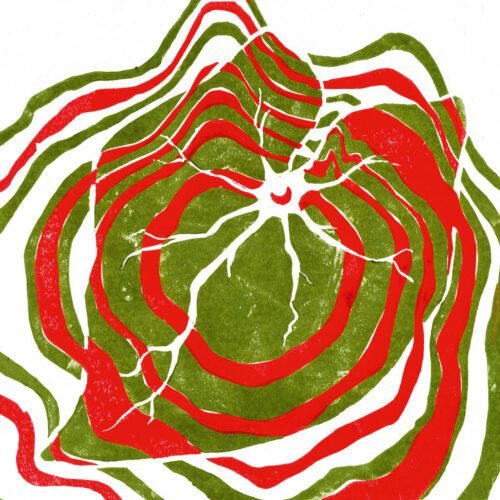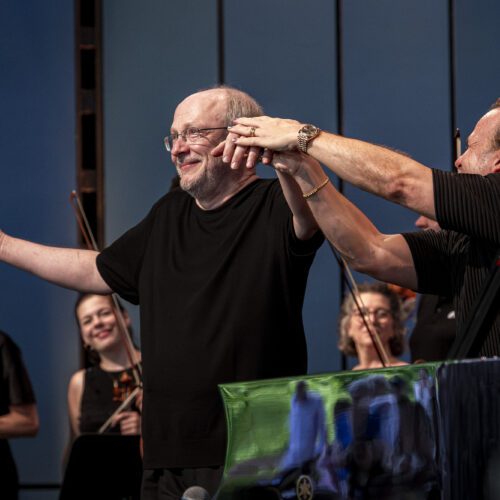The booklet for Ice Door reads like an abstract mathematical theorem. This is because the Spaniard Juan J. G. Escudero is not only a composer but also a researcher at the crossroads of music, mathematics and physics. While he can obviously explain in depth what links one of his scores to the curvature of the photonic radiation of certain variable stars, for ordinary mortals, this in no way presupposes the interest of the resulting music. And even if for an indefatigably curious person like me this is fascinating, even without understanding anything about it, I remain aware that for those of you who will read this review, the only question that counts will be: is it good music or not?
Objectively, yes, it’s very good music. The underlying principles are admittedly extraordinarily complex and, in all honesty, the supreme originality of the final product rather convoluted, but the sonic plasticity is pleasing. The general framework is made up of random crackling sounds that behave like spurts of more or less voluminous, more or less long-lasting, more or less active particles. We are thus plunged into a primitive, pre-Cambrian textural sea, made up of thousands of micro-organisms moving and manifesting themselves, only to disappear immediately before us.
This is the most honest visualisation/vulgarisation I can offer of music that is rigorously abstract and avant-garde. Of the six pieces on the programme, four are strictly electronic and two are largely acoustic. The latter are utterly delightful, because it’s fun to imagine these instrumentalists fighting hard to bring these quivering scores to life, somewhere between Feldman and spectralism.
An excellent album of music for informed and daring ears.
























